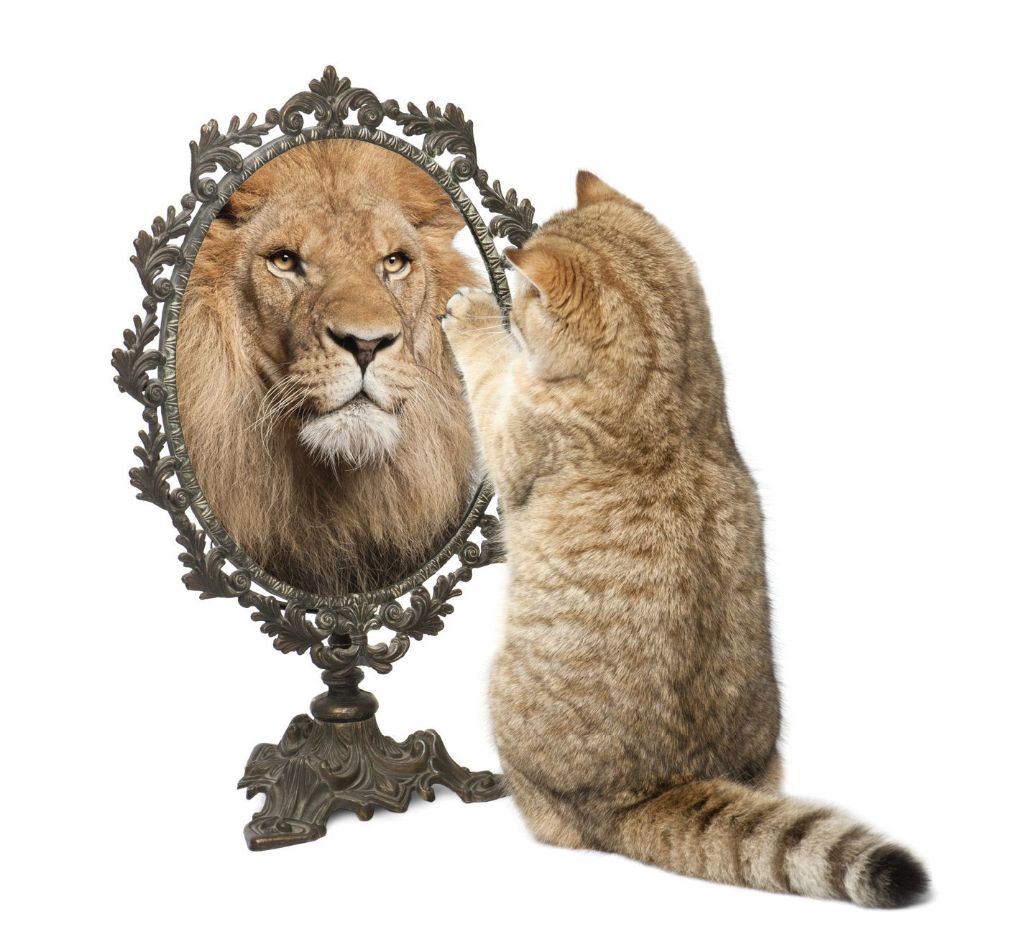If you’ve ever found your feline friend hiding under the bed or darting away at the sound of a stranger’s voice, you may have wondered how you can help them feel more confident and comfortable in their surroundings. In this article, we will explore the importance of cat socialization and provide practical tips to help build your feline friend’s confidence and create a harmonious environment for both you and your furry companion. Together, let’s unlock the secrets to building a strong bond and instilling a sense of security in your beloved feline friend.
Understanding Cat Confidence and Comfort
Defining cat confidence
Cat confidence refers to a cat’s overall sense of self-assurance and security in its environment. When a cat is confident, it displays relaxed body postures, shows curiosity, and engages in appropriate social interactions. Confident cats are more likely to explore their surroundings, interact with humans and other animals, and handle unexpected situations with ease.
Importance of a comfortable environment for cats
Creating a comfortable environment for your cat is crucial for its overall well-being and confidence. A comfortable environment provides a sense of security, reduces stress, and promotes positive behavior. Cats thrive in an environment with plenty of hiding spots, elevated perches, and vertical spaces to explore. It is important to ensure access to clean litter boxes, fresh food and water, and consistent daily routines. Providing scratching posts, toys, and interactive playtime also contribute to a comfortable and enriched environment for your feline friend.
Signs of insecurity and discomfort in cats
Understanding the signs of insecurity and discomfort in your cat is important for addressing their needs and helping them build confidence. Some common signs of insecurity and discomfort include excessive hiding, decreased appetite, aggression, excessive grooming, inappropriate urination, and excessive vocalization. It is essential to pay attention to these behaviors and provide support and reassurance to help your cat feel more comfortable in its environment.
The Role of Socialization in Cat Confidence
Understanding socialization in cats
Socialization plays a vital role in shaping a cat’s confidence. It involves exposing kittens to various people, animals, and environments at an early age to ensure they develop positive associations and learn appropriate social behaviors. Socialized cats are more likely to feel comfortable in new situations and interact positively with humans and other animals.
Socialization and its effect on cat confidence
Proper socialization during the sensitive period of a kitten’s life (between 2 to 7 weeks old) helps them develop resilience and confidence. They become familiar with different sights, sounds, and smells, which reduces anxiety in unfamiliar settings. Socialized cats are more likely to approach new experiences with curiosity and adaptability, ultimately leading to increased confidence in various environments.
Ideal time for cat socialization
The ideal time for cat socialization is during the first seven weeks of a kitten’s life. During this period, they are more receptive to positive experiences and form lasting impressions. If you’re adopting an older cat, socialization can still be beneficial, but it may require more time and patience. Gradual exposure to new people, animals, and environments is key to helping cats of all ages build confidence and feel more comfortable in their surroundings.

Practical Steps to Build Confidence in Your Cat
Creating a safe space for your cat
Establishing a safe space for your cat is essential for building its confidence. Provide a quiet, secluded area where your cat can retreat to when feeling overwhelmed or anxious. This space should include comfortable bedding, toys, and a litter box. Avoid forcing your cat to leave its safe space and always respect its need for privacy.
Using play to build confidence
Playtime is an excellent way to build your cat’s confidence and strengthen the bond between you. Engage your cat in interactive toys, such as wand toys or puzzle feeders, to stimulate their natural hunting instincts. Encourage gentle play and positive interactions, avoiding any rough or aggressive behavior. Play sessions provide mental and physical stimulation, boosting your cat’s confidence and overall well-being.
Reward-based training to foster confidence
Positive reinforcement is a powerful tool for building confidence in cats. Use treats, praise, and affection to reward your cat for desirable behaviors. When your cat successfully performs a desired behavior, such as using a scratching post or using the litter box, offer immediate rewards. This positive association helps your cat associate certain actions with positive outcomes, leading to increased confidence and a willingness to learn.
Understanding and Handling Cat Fears
Common fears in cats
Cats can develop various fears throughout their lives. Common fears include loud noises (such as thunderstorms or fireworks), strangers, unfamiliar animals, and changes in routine or environment. It is important to identify your cat’s specific fears to provide targeted support and help them overcome these anxieties.
How to help your cat in overcoming its fears
Helping your cat overcome its fears requires patience, understanding, and gradual desensitization. For example, if your cat is afraid of loud noises, create a safe and quiet space for them during thunderstorms or fireworks. Provide comforting and calming activities, such as puzzle toys or classical music, to distract them from the fearful stimuli. Gradually expose your cat to the feared stimuli in a controlled and positive manner, rewarding them for calm behavior. Consult with a veterinarian or a professional animal behaviorist for more guidance on fear-based behavior modification techniques.
Professional help for severe cases
In severe cases of fear and anxiety, it may be necessary to seek professional help. Certified animal behaviorists or veterinarians with expertise in behavior can provide specialized guidance and create a customized behavior modification plan tailored to your cat’s specific needs. They may recommend behavior therapy, medication, or a combination of both to address and manage your cat’s fears effectively.

Importance of Routine in Building Cat Confidence
How routine helps in reducing cat anxiety
Cats are creatures of habit and thrive on routine. A consistent daily routine provides predictability, which can help reduce anxiety and build confidence. Knowing what to expect each day, such as regular feeding times and play sessions, gives cats a sense of security and control over their environment. Establishing and maintaining a routine also helps prevent sudden changes that may disrupt your cat’s sense of comfort and confidence.
Creating a consistent routine for your cat
To create a consistent routine for your cat, establish fixed feeding times, play sessions, and grooming routines. Ensure that these activities occur at roughly the same time each day. Consistency in routine also extends to maintaining a regular sleeping schedule and keeping the environment as stable as possible. Try to minimize sudden changes and disruptions, such as rearranging furniture or introducing new pets, as these can be sources of stress and unsettle your cat’s confidence.
Effect of sudden changes in routine
Sudden changes in routine can significantly impact a cat’s confidence and overall well-being. Cats are sensitive to changes in their environment, and unexpected disruptions can lead to stress and anxiety. If a change in routine is unavoidable, provide your cat with a safe space, familiar objects, and increased reassurance to help them adjust to the new situation. Gradually introduce any new elements, such as a new pet or a change in living arrangements, to minimize stress and give your cat time to adapt.
Nutrition and Cat Confidence
Role of diet in your cat’s mental health
A cat’s diet plays a crucial role in its mental health and overall well-being. Providing a balanced and nutritious diet can support your cat’s cognitive function, promote a healthy mood, and contribute to a confident and comfortable demeanor. High-quality cat food should contain essential nutrients, such as omega-3 fatty acids and vitamins, which are known to support brain health and emotional stability.
Recommended diet for confident, comfortable cats
To ensure your cat’s confidence and comfort, opt for a diet that consists of high-quality, protein-rich cat food. Choose a brand that meets the nutritional requirements of cats and provides a balanced blend of proteins, fats, and carbohydrates. Consult with your veterinarian to determine the most suitable diet for your cat based on their age, weight, and specific health needs.
Dangerous foods to avoid
Certain foods can be harmful or toxic to cats and should be strictly avoided. Common foods that are toxic to cats include chocolate, caffeine, alcohol, grapes, onions, garlic, and certain artificial sweeteners. These foods can cause a range of health issues, including gastrointestinal upset, organ failure, and even death. Always educate yourself about foods that are safe for cats and take precautions to prevent accidental ingestion of harmful substances.

Role of Physical Health in Cat Confidence
Link between physical health and cat’s confidence
The physical health of a cat directly impacts its confidence and overall well-being. Cats that are in good physical health are more likely to display positive behavior and feel secure in their environment. Regular exercise, a balanced diet, and preventive healthcare measures, such as vaccinations and parasite control, contribute to a cat’s physical well-being, thus boosting their confidence.
Common health issues causing discomfort and anxiety
Several common health issues can cause discomfort and anxiety in cats, affecting their confidence levels. Dental problems, urinary tract infections, arthritis, allergies, and obesity are just a few examples of conditions that can impact a cat’s physical comfort and overall confidence. Regular veterinary check-ups, a healthy diet, and prompt medical attention for any health concerns are vital for maintaining your cat’s physical well-being and confidence.
Need for regular vet check-ups
Regular veterinary check-ups are essential to catch any potential health issues early on and address them promptly. Routine examinations, vaccinations, and preventive treatments can help maintain your cat’s physical health and overall confidence. Your veterinarian can also provide advice on nutrition, exercise, and environmental enrichment to ensure your cat’s well-being.
Building Cat Confidence through Positive Human Interaction
Importance of gentle handling
Gentle handling is crucial for building your cat’s confidence and trust in humans. Avoid any aggressive or rough handling, as it can cause fear and anxiety in your cat. Approach your cat calmly and speak softly to reassure them of your presence. Gain their trust by offering gentle strokes, scratching in their preferred areas, and avoiding any sudden movements that may startle them. Positive interactions with humans will gradually build your cat’s confidence and strengthen the bond between you.
Safe and respectful play with your cat
Play is an essential aspect of building confidence and mental stimulation in cats. Engage in interactive play sessions with your cat using toys that stimulate their natural hunting instincts, such as feather wands or laser pointers. Ensure that the play is safe and respectful, avoiding any rough play or aggressive behaviors. Always allow your cat to retain control over the play session, letting them dictate the pace and intensity.
Role of positive reinforcement
Positive reinforcement is a powerful tool for building confidence in your cat and encouraging desired behaviors. Reward your cat with treats, praise, and affection when they exhibit confident and calm behaviors. For example, when your cat approaches a new situation without fear, provide immediate positive reinforcement. This helps your cat associate confidence with positive outcomes, reinforcing their self-assurance in various situations.
Using Assistive Tools to Boost Cat Confidence
Use of pheromone diffusers
Pheromone diffusers, such as Feliway, can be helpful in calming and boosting your cat’s confidence. These diffusers release synthetic pheromones that mimic the natural calming scents produced by cats. By creating a familiar and comforting atmosphere, they can help reduce stress, anxiety, and promote positive behaviors. Place pheromone diffusers in areas where your cat spends the most time to maximize their benefits.
Benefit of confidence-boosting toys
Confidence-boosting toys can provide mental stimulation and increase your cat’s confidence. Toys that encourage interactive play, problem-solving, and mimic natural hunting behaviors are especially beneficial. Puzzle toys, treat-dispensing toys, and interactive catnip toys can engage your cat’s senses, promote exploration, and build confidence as they successfully navigate and “hunt” these toys.
Exploring thundershirts
Thundershirts, also known as anxiety wraps, are specially designed garments that provide gentle, constant pressure to help calm anxious cats. These wraps simulate the feeling of being held or swaddled, which can have a calming effect on cats. Thundershirts are particularly useful during stressful situations, such as thunderstorms, fireworks, or vet visits. Consult with your veterinarian to determine if a thundershirt could benefit your cat’s confidence and overall well-being.
Common Mistakes to Avoid that Can Lower Cat Confidence
Avoiding punishment-based training
Punishment-based training methods can severely impact a cat’s confidence and trust in humans. Fear-based techniques, such as yelling, spraying water, or physically punishing your cat, can lead to increased anxiety and aggression. Instead, focus on positive reinforcement and rewards to encourage desired behaviors and build your cat’s confidence in a safe and loving manner.
Negative impacts of inconsistent behavior
Inconsistency in your behavior and expectations can confuse and stress your cat, lowering their overall confidence. Ensure that rules, boundaries, and routines are consistent for your cat. This includes maintaining a regular feeding schedule, providing consistent playtime, and enforcing consistent training methods. By establishing clear and predictable patterns, your cat feels secure and confident in its daily interactions and environment.
Avoiding overdependence
While it is essential to provide love and affection to your cat, avoid creating an overdependent relationship. Cats need to develop their independence and confidence. Encourage them to explore their environment, engage in independent play, and provide them with an enriched environment that stimulates their curiosity. By allowing your cat to navigate the world on their own terms, you foster their self-confidence and ensure a healthier and more confident feline companion.
In conclusion, understanding cat confidence and comfort is crucial for providing a fulfilling and enriching life for your feline friend. By creating a comfortable environment, socializing them at an early age, building their confidence through positive interactions and play, addressing their fears and anxieties, maintaining a consistent routine, ensuring proper nutrition and physical health, and using assistive tools when needed, you can help your cat become a confident and content companion. Remember, patience, love, and understanding are the keys to building your cat’s confidence and creating a long-lasting bond with your feline friend.

